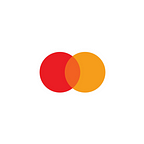👎 #FacebookDown
The 6 hour outage of Facebook had massive effects on small businesses using these platforms to reach customers, particularly in emerging markets where social commerce is prevalent. Business owners reported impacts such as loss of revenue and future customers, and a shocking realization about the extent of their dependence on such platforms. We’re curious to see if the outage will lead to lasting change in usage patterns. Will small businesses move towards ecommerce platforms or turn to other social platforms like Twitter?
What happened
Facebook, WhatsApp, and Instagram went down for about six hours on Monday, 4 Oct. Since many small businesses around the world use social media rather than standalone software to reach their customers, this outage had massive effects on them.
What we learned
The outage affected small businesses everywhere, but the magnitude of impacts varied:
- While we didn’t find any numbers to quantify the outage’s effect, media articles presented many anecdotes to suggest that the most direct outcomes were loss of revenue and loss of future customers.
- Businesses that sell goods and services mostly via social media (like small producers and traders) and those that operate entirely through them (like influencers) were most dramatically affected.
- Businesses that directly depend on Facebook experienced a psychological effect of shock, disbelief, and insecurity about the future. One business owner summed up: “We’re at its mercy.”
- Time zones mattered greatly. One article mentioned that people shop for tickets in the evening in India, which meant that event organizers and ticket sales services were hit especially hard. Another piece notes that small businesses in Indonesia mostly dodged the outage’s impacts because it happened during night time there. Yet, the same article also highlights the story of an Indonesian designer who processes her orders at night when her child is asleep, showing that impacts also depended on a business’s daily routines.
- A more subtle effect was the way in which Facebook’s algorithms seem to have been thrown off temporarily by the blackout, at one point boosting some influencers while discounting others.
The bigger picture
Facebook’s disruption brought into sharp relief how essential it has become to small businesses across the Global South.
- Most small businesses in the Global South rely on social commerce (trading via social media like Facebook) as an alternative to traditional ecommerce (trading through an ecommerce platform like Jumia). One study finds that 92% of micro and small enterprises (MSEs) in Kenya use social commerce, while only 27% use ecommerce platforms. Another recent survey of small businesses across Africa suggests that 84% find social media important to grow their business and 55% think these apps were helpful to launch their business.
- According to Facebook’s own data, the Covid pandemic has only accelerated this trend. Meanwhile, Facebook is deepening its offering for MSEs by launching new partnerships and introducing new products.
- Western media took a few days to realize the outage’s effect on small businesses, while media across the Global South emphasized this aspect much more explicitly and immediately.
- It will be interesting to see if the psychological shock will translate into a lasting change of usage patterns. Millions of small businesses may have awoken to just how dependent they are on Facebook, possibly making them more amenable to considering ecommerce platforms or to relying more on other social media like Twitter.
Small Business Spotlight is a roundup of recent trends and insights about small enterprise in the digital age, by Dr Nicolas Friederici
